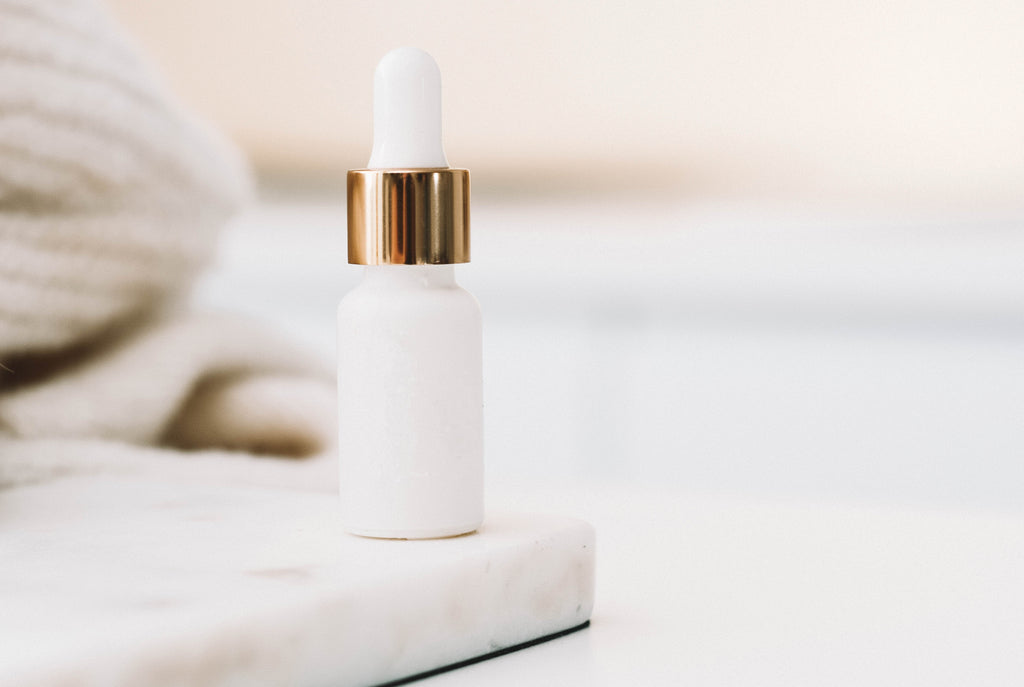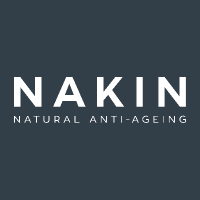Is Retinol Safe To Use?

Retinol or retinoids are one of the best-known anti-ageing skin ingredients and have been used by dermatologists for decades. It’s such a well-known ingredient as it is commonly used in skincare and has skin renewing powers. Because of its anti-ageing ability and as it is derived from vitamin A, retinol sounds like the holy grail of skincare and many people say that retinol is safe to use. However, at Nakin we feel that retinol is an ingredient to be cautious of, and therefore we never use it in our natural skincare. It is a synthetic ingredient and one that can commonly cause irritation to skin, so much so that lots of people find that they can never actually use it.
At Nakin we are not keen on ingredients that can throw skin off balance in any way, as we believe that it disrupts the delicate microbiome. Once our microbiome is compromised it can be hard to heal it properly and can also take a long time. At Nakin we much prefer natural options and so we use a retinol alternative in our Nakin Performance Face Serum and Eye Cream Complex, and this is a 100% natural peptide that is derived from hibiscus. Most dermatologists will agree that the next best thing to retinol is peptides, as they are excellent for line smoothing and improving elasticity.
Is Retinol Safe To Use?
We know that retinol can cause skin irritation, but also has more serious concerns associated with it. Our feelings are shared by the Environmental Working Group and they present them in their Skin Deep Guide. The EWG ingredients guide www.ewg.org is the industry and consumer go to for everything you need to know about cosmetic ingredients safety. They have been researching retinol for years and bring together all the available data on an ingredient. When looking at retinyl palmitate, which is the gentlest form of retinol, the EWG give it a worrying high score of 6-9. This is extremely high as their ingredient assessment states a score of 0-2 as low hazard, and 7-10 as high hazard. The full data can be seen on their website, and in fact any ingredient can be typed into the database to check if it is safe to use. We have summarised their concerns of retinyl palmitate as being the below.
- Biochemical and cellular level changes
- Reproductive toxicity
- Mutation ability, skin and environmental toxin
As well as the biological concerns of using retinol to our systems, it’s well known to cause skin irritation. It is a harsh ingredient with the power to change our skin significantly and many who use it (especially to start with) report skin problems such as dryness, redness, flaking and inflammation. At Nakin it seems common sense that any ingredient which commonly causes so many problems to skin is one to be avoided. Therefore, Nakin recommend to not use retinol products as there are serious concerns on the safety of them, and they can cause damage and irritation to skin. Instead using natural skincare like our award-winning anti-ageing skincare range improves skin in many ways, without any concerns to our safety. There are many natural plant ingredients with powerful skin enhancing abilities, so retinol is not an essential ingredient.
What Is Retinol?
Retinol is a form of vitamin A and it works as an anti-ageing ingredient to minimise fine lines, age spots plus sunspots; as well as reducing the appearance of pores. But true retinol used in skincare (you can get some products claiming to be natural retinol, but they usually just contain ingredients that are rich in vitamin A) is not like applying natural vitamin A to skin. Retinoids are the family of ingredients derived from vitamin A, and retinol is the ingredient. Retinol is chemically produced, and only a derivative of vitamin A. With retinol being derived from vitamin A lots of us believe that it is a kind and natural ingredient. We always recommend putting vitamins onto our skin to help it flourish. Vitamin A occurs naturally in our systems, but applying retinol onto our skin is not the same as applying just pure natural vitamin A.
Retinol is proven as an anti-ageing product to affect things like fine lines, reduce skin pigmentation, sun damage and pore visibility; as well as giving clearer brighter skin. It sounds like a wonder ingredient, but we recommend not using it as we much prefer natural cosmetic products. Depending on the concentrations of retinol used in a face care product it can be a powerful ingredient that does work as a skin anti-age product, but it can also cause irritation. There is also much deeper biological concerns about using retinol, as the EWG and others have reported on. Retinol is normally an ingredient for more mature skin, although it is often used to help acne scarring. Retinol is now an easily obtained ingredient in skincare and can be found in lots of conventional skincare products. The strength of retinol in face products varies dramatically from high strength prescription creams that can contain a very strong form of retinol like Tazarotene, to an affordable over the counter product which would have the weaker Retinyl Palmitate.
If you use retinol then we suggest taking lots of care with it. Always carry out a patch test before using a product with retinol in, because it can cause sensitivity and irritation to skin. Only use retinol at night, as it does not work in the sun and sun exposure while wearing retinol can cause skin sensitivity. Retinols are keratolytic which means they help to exfoliate the top surface of the skin. Therefore, do not use another exfoliating product including a scrub, mask or glow tonic. Instead cleanse skin gently with a kind natural cleansing milk. You don’t have to use retinol all over your face. If you do prefer to use it then instead try it on just the odd problem area, such as age spots or lines around the mouth or eyes. Lastly, do not use retinol if you are pregnant, have rosacea or a skin condition.
Natural Alternatives to Retinol
- Hibiscus is our favourite alternative to retinol when it is made as a peptide. It is completely safe to use and 100% natural and still packs a lot of power in the fight against lines and wrinkles. This is why we use it in our Anti-Ageing Eye Cream and Anti-Ageing Face Serum.
- Pomegranate is another natural ingredient that we love and this is why we use it in our Anti-Ageing Face Cream for Oily Skin and our Anti-Ageing Face Cream for Dry Skin.
- Seaweed extract in skincare brings the intense nutrients of the sea to help skin by evening skin tone and helping with pigmentation. As well as helping to smooth lines and detoxify skin. Find it in our Anti-Ageing Face Toner.
- Baobab oil contains many skin loving vitamins, as well as being a natural source of vitamin A for skin. So, it’s a much kinder alternative to retinol. It smooths lines and improves elasticity and this is why we use it in our Anti-Ageing Lip Balm and Anti-Ageing Face Oil.
Nakin are natural skincare experts and all our products are ethically made in the UK. We believe in helping skin to look amazing naturally, without the use of harsh ingredients like retinol. Our full range of anti-ageing cleansers, face moisturisers, treatments, lip and eye products can be found at www.nakinskincare.com Nakin use only the finest plant ingredients and every product is cruelty free. Take a look and discover the best skincare products for beautiful glowing skin.


Leave a comment